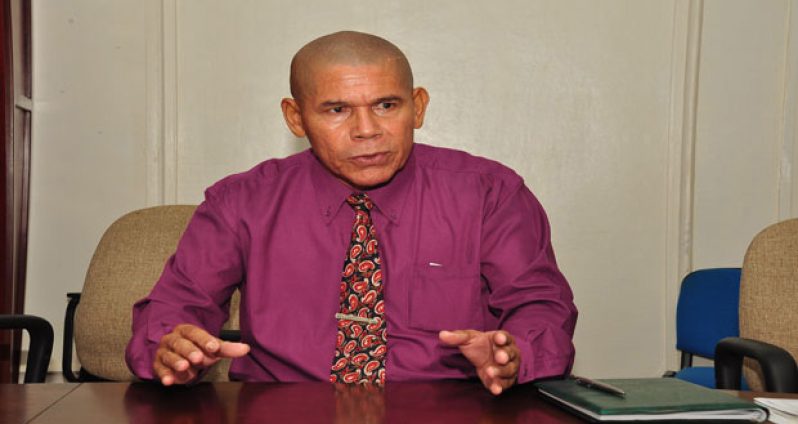By Svetlana Marshall
GOVERNMENT has set aside $773.6M to fill the gap left by Global Fund which was designed to fight AIDS, tuberculosis and malaria. Public Health Minister, Dr George Norton made this disclosure to the Parliamentary Committee of Supply on Monday as he defended the $19.021B budgeted for the Public Health sector.
“Mr Chairman, what we have here is the absorption of some cost previously funded by the Global Fund which ended in 2015 for the Tuberculosis (TB), the National AIDS Programme Secretariat (NAPS) and the Vector Control Programme,” he explained, while alluding to Programme 432: Diseases Control – Line Item 6221:Drugs and Medical Supplies.
Approximately 25 patients will benefit significantly under this initiative, with the government to fund second-line medication for seven patients under the NAPS. “It is anticipated that the Global Fund will support 10 other patients,” said an optimistic Norton. Over the next three years, he said, the Public Health Ministry will increase its support for a larger pool of patients. Of the $773.6M, approximately $220M will be spent on malaria while $100M has been set aside to treat persons living with diabetes.
However, under Capital Expenditure, Global Fund is providing $280M for the provision of HIV/AIDS, tuberculosis and malaria interventions.
In addition to provisions made under Diseases Control, $61.6M has been budgeted for the procurement of drugs and medical supplies under Programme 431: Policy Development and Administration; $360M under Programme: 433: Family Health Care Services; $120.8M under Programme 434: Regional and Clinical Services; $2M under Programme 435: Health Sciences Education; $400M under Programme 436: Standards and Technical Services; and $5M under Programme 437: Disability and Rehabilitative Services.
With millions of dollars set aside for the procurement of drugs and medical supplies, People’s Progressive Party (PPP) Member, Dr Frank Anthony requested of the Public Health Minister an explanation the procurement process being used.
OPEN, COMPETITIVE BIDDING
Minister Norton, in response, said drugs and medical supplies will be procured using primarily an open and competitive bidding system. However, it was explained that the procurement of drugs and medical supplies remains substantially a centralised process with the exception of minor purchases that include medical gases, snake bite kits and small emergency supplies.
The Health Minister explained that allocations will be distributed across the regions; however, procedurally, the fundss will be warranted back to the Ministry of Public Health from the regions to facilitate centralised procurement and the benefits of economies of scale and requisite quality controls.
The Regional Executive Officers will send the agreed sum to the Ministry of Public Health for the purchase of drugs and medical supplies for the facilities across the regions. But Dr Anthony was not satisfied with the answer given, and as such, pressed for more. “Am I to understand that the future procurement of…$773M that there will be no sole sourcing?” he asked.
“No sir, no Mr Speaker, we can’t give that assurance,” Dr Norton said in return. However, he made it clear that the Public Health Ministry is pushing for the issue of sole sourcing to be “a thing of the past”.
The new system being used for the procurement of drugs and medical supplies ultimately breaks the monopolistic arrangement which existed under the People’s Progressive Party/ Civic (PPP/C). The PPP/C administration, according to the Public Health Ministry, sold 90 per cent of its shares in an entity it owned and controlled, only to turn back and buy drugs from the same entity which has become a private enterprise. It was said that the health sector was burdened with buying drugs from a single source, because the procedure of prequalification was decidedly skewed in favour of the NEW GPC.
However, the new bidding document is designed in a manner that allows companies of all sizes to participate in an open and competitive process.
Medical supplies and pharmaceuticals will be placed into lots, allowing companies, if they so desire, to bid for particular lots. Already, more than 35 of the new bidding documents have been sold.




.jpg)









